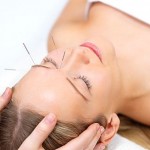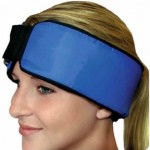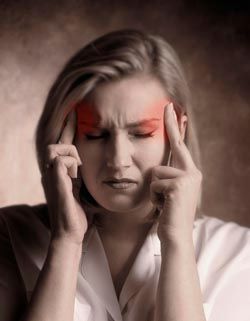Tension headache is the most familiar type of headache in adults. This is also known as stress headaches. Tension headache can be described as episodic or chronic. It is characterized as episodic if it appears periodically in a couple of days per month. It is described as chronic if it is felt on a daily basis or if it is felt for regularly for more couple of days each month.
Tension headache may appear as a pain in the forehead and sides or back of the head. Sometimes it may spread on the neck. Tension headache usually starts gradually during the mid afternoon and may worsen as day progresses.
Studies show that tension headache affects thirty to eighty percent of adult population. Women are more at risk of developing tension headache than men.
Majority of tension headache do not interfere with day-to-day activities but it can still give pain and uncomfortable feeling. To manage the pain, tension headache treatment is available and part of the treatment is medications and non-drug treatments.
What are the Symptoms of Tension Headache?
Symptoms of tension headache can vary from one patient to another. Some of the symptoms of tension headache may include:
- Pain in the head
- Chronic fatigue
- Irritated easily
- Muscle ache
- Lack of concentration
- Pressure that may start in forehead and spread on the sides or back of the head
- Feeling of tenderness on the neck, shoulder and scalp
- Some cases may have loss of appetite
- Tension headache may last from thirty minutes to several days. The severity of pain may vary from person to another.
- The difference of tension headache to migraine is that tension headache is not linked to visual disturbances like flashing lights, nausea and numbness.
What are the Causes of Tension Headache?
The exact real cause of tension headache is not really known. Experts believe that the common cause is that tension headache is a result of muscle contraction the occurs in the scalp, neck and face, as a possible result of stress. However, new research shows that there is no significant increase of muscle tension with people who have diagnosed headache.
The common theory is the involvement of nerve pathways of the brain thus heightening the sensitivity to pain of those who have tension headache.
There are possible triggers that may contribute to tension headache. Some of the possible triggers are:
- Lack of rest
- Depression
- Fatigue
- Clenching of jaws
- Hunger
- Not enough sleep
- Anxiety
- Stress
Managing what triggers the tension headache treatment will be helpful in treating or possibly preventing the onset of tension headache.
What is the risk factors affecting tension headache?
There are two main risk factors of tension headache.
- Woman is more at risk of developing the tension headache. According to studies, ninety percent of women had experienced tension headache while only seventy percent of men had experienced tension headache in their lifetimes.
- People at any age can have tension headache however, those who are in 40’s and above are more prone to tension headache than their younger counterparts.
What is the Tension Headache Treatment?
Tension headache treatment may be composed of medications, relaxation techniques and non-traditional therapies. Some of the tension headache treatment may include:
1. Medications
 The common medication for tension headache is pain reliever. This is effective in easing the headache pain. However, do not drink any medications without the proper prescription of your physician because overuse of medication can also cause overuse headaches.
The common medication for tension headache is pain reliever. This is effective in easing the headache pain. However, do not drink any medications without the proper prescription of your physician because overuse of medication can also cause overuse headaches.
           2. Preventive medications
 Preventive medications are given to lessen the frequency of attack of the headache. This may also help in reducing the severity of the symptoms. Avoid drinking to much caffeine if you are drinking preventive medications because caffeine may interfere with the effectiveness of the medication.
Preventive medications are given to lessen the frequency of attack of the headache. This may also help in reducing the severity of the symptoms. Avoid drinking to much caffeine if you are drinking preventive medications because caffeine may interfere with the effectiveness of the medication.
Â
           3. Relaxation techniques
 Relaxation techniques like deep breathing and biofeedback are effective in treating tension headache if the cause of tension headache is anxiety and depression.
Relaxation techniques like deep breathing and biofeedback are effective in treating tension headache if the cause of tension headache is anxiety and depression.
4. Acupuncture
 Acupuncture can give temporary relief for technique headache. Ask first your healthcare provider if acupuncture is recommended to your condition.
Acupuncture can give temporary relief for technique headache. Ask first your healthcare provider if acupuncture is recommended to your condition.
5. Hot or cold packs
 Patient with tension headache may choose from hot or cold packs. Hot or cold packs can ease the sore muscles. The patient will choose either to use hot or cold packs, depending on their personal preference.
Patient with tension headache may choose from hot or cold packs. Hot or cold packs can ease the sore muscles. The patient will choose either to use hot or cold packs, depending on their personal preference.
Headache pain can be managed and even prevented through proper use of tension headache treatment. Avoid drinking any medications without approval of your health care provider to avoid any complications later on. Likewise, consult your doctor if your condition worsens to rule out other serious health problems.
